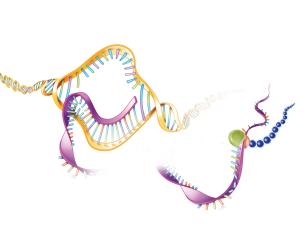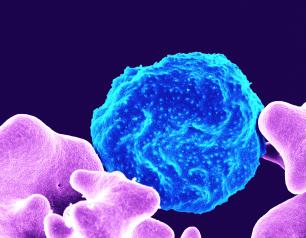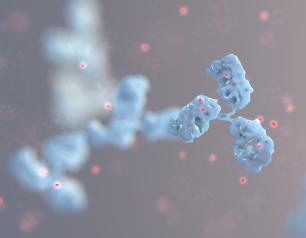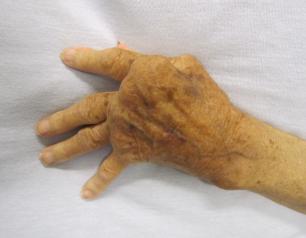5 Results
Scientists Discover Cause, Potential Treatment for Cases of Deadly Autoimmune Disorder
Discovery of a gene variant causing some cases of APECED, a rare inherited autoimmune disease, will enable earlier diagnosis & medical care that may prolong lives.

The Hidden Link Between Malaria and Lupus
Scientists have long been aware that malaria infection is associated with high levels of autoantibodies—antibodies that recognize and attack the person’s own tissues and are associated with autoimmune disorders. NIAID researchers, along with their colleagues, have studied the molecular mechanisms of these autoantibodies. Their findings reveal the associations between malaria, human resistance to it, and autoantibodies that are linked to certain autoimmune disorders—specifically, systemic lupus erythematosus (SLE).

Unpacking the Interplay between Autoimmunity and Immunodeficiency
The presence of antibodies that target one of the body’s own proteins was associated with severe infections that typically only occur when a person’s immune system is suppressed, based on a multi-cohort study of blood samples from more than 1,000 people. This study suggests autoimmune processes could be involved in the development of immunodeficiency in adulthood.

In People with Stable Lupus, Tapering Immunosuppressant Linked to Low Flare Risk
In people with a form of lupus called systemic lupus erythematosus (SLE), the risk for a severe flare-up of disease was low for both individuals who tapered off long-term immunosuppressive therapy and those who remained on it, a clinical trial has found. The National Institute of Allergy and Infectious Diseases (NIAID), part of the National Institutes of Health, sponsored and funded the trial. The findings were reported today in the journal The Lancet Rheumatology.

Newly Discovered Species of Gut Bacteria May Cause Some Cases of Rheumatoid Arthritis
Research by NIAID grantees strongly suggests that immune responses to a newly discovered species of gut bacteria may cause some cases of a common autoimmune disease called rheumatoid arthritis. The findings were recently published in Science Translational Medicine.


